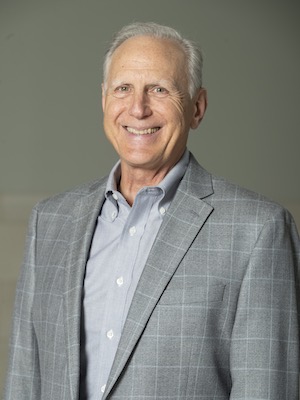
Snow and ice made for a slippery walk from the airport gate to the portable stairs of a prop plane that would take my family from one Norwegian town to another over the Christmas holidays.
The plane’s interior was small — with just four seats per row, divided by a narrow aisle.
Across the aisle from my seat was that of a younger woman who was as quietly as possible expressing her pre-takeoff anxiety.
Whatever or whomever was at the other end of the short flight must have been important. For she seemed to want to be anywhere on earth other than aloft.
I was not the only one to take note of her feelings. Just before takeoff, a flight attendant of similar age to the woman kneeled to offer words of comfort, even empathy.
After some well-stated safety reassurances, she even told of previously having a fear of flying herself.
The passenger mustered a brief response of amazement that someone who once feared flying could make it into a career.
Seeing that she had gained some ground, the flight attendant shared her fear-reduction strategy.
“I started envisioning myself riding a roller coaster rather than flying on a plane,” she said. “I’d just go with each movement as if the roller coaster was moving along the track.”
The flight attendant clearly and compassionately hoped that her tried-and-true strategy might be applied by this passenger when the plane took off into the early winter darkness for this less than two-hour jaunt.
But the passenger replied, “I’m scared of roller coasters too.”
I turned my head to conceal a smile, not wanting either to think I was making light of them. But I realized how often a similar exchange occurs.
Whether a parent encouraging a child or a friend emboldening a friend or a minister offering words of assurance to the faithful, the response can seem similar.
The offered solution may be as unappealing as the presented problem.
Often, even when well-intended, we are too eager to offer “Try this” solutions based on our own experiences that don’t necessarily apply to others.
Fears are very personalized and can be perceived as irrational. Yet, very real phobias are not to be scoffed at or dismissed by those who do not share them.
Such fears deserve compassion and professional help in overcoming them.
However, there are some very controllable fears that tend to define our beliefs and the corresponding behaviors.
These can be addressed by seeing how out of line they are with the life and teachings of Jesus — the one confessed to be lord.
The Persian poet Hafez is credited with saying: “Fear is the cheapest room in the house; I’d like to see you living in better conditions.”
Fear of social change drives much of the discrimination and hostilities towards vulnerable people today — empowered on a large scale by white Americanized Christians.
Fear of a society in which persons are not treated justly drives those of us seeking to counter such attitudes and actions we consider at odds with the life and teachings of Jesus.
Peter J. Gomes, a Baptist minister and professor of Christian morals at Harvard, rightly noted: “The chief reason that fundamentalism is dangerous is that … it uses scripture and the Christian practice to encourage ordinarily good people to act upon their fears rather than their virtues.”
Identifying our fears seems to be the first important step in determining in what ways they drive our thinking, believing and acting.
As our plane landed smoothly and began its taxi toward the terminal, I glanced to my left. It was easy to see the tension exiting the body of my neighboring passenger.
And I wondered again what, or more likely who, in that seaside town in Norway was enough motivation for her to board this fear-inducing flight.
I acknowledged her bravery and our safe arrival with a smile. And counted the extra-mile encouragement from the flight attendant to have been helpful — even if the roller coaster analogy was not.
Then I wondered how we might best help those whose more-defining fears bring out less than the best of who they are and claim to believe.
Fears are very real, even for those of us who claim inspiration from the biblical texts — including from the lips of Jesus — that repeatedly call us to “fear not.”
Perhaps bringing our fears into our acts of discipleship — prayer, study, worship, service — can help us to refine our beliefs and resulting behaviors to better align with the one we claim to follow.
One helpful exercise just might be to look for the seeds of the fears that often get passed off as truth.
Another Baptist minister, who was also a World War II veteran, reminded us of how fear is often an obstacle to better living.
“Everything you’ve ever wanted is on the other side of fear,” said George Addair.
Executive editor / publisher at Good Faith Media.

